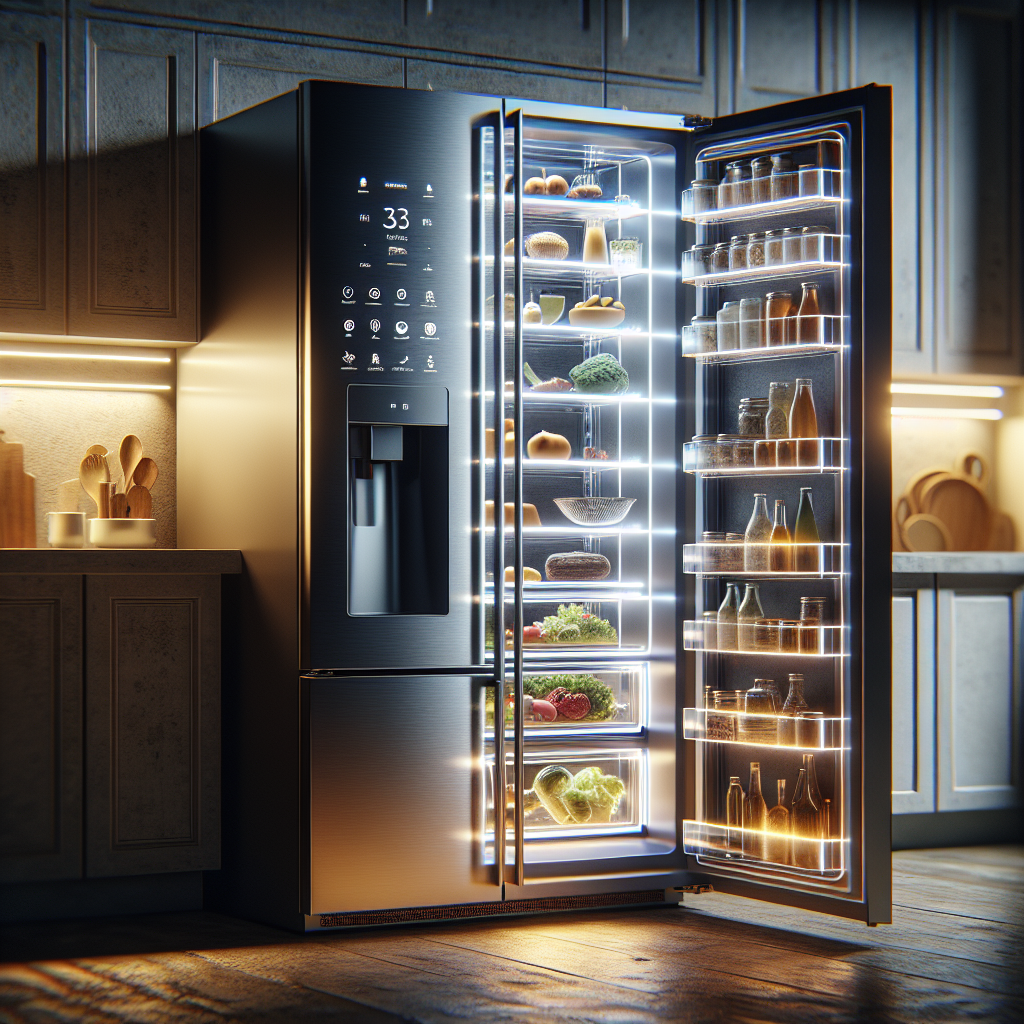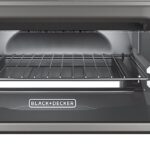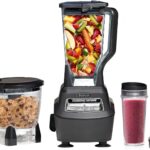
Are you tired of the daily struggles in the kitchen? Well, it might be time to consider upgrading to smart home appliances. In this article, we will explore the benefits of investing in these futuristic devices for your kitchen. From cutting-edge features that simplify your cooking experience to seamless integration with other smart devices, these appliances are revolutionizing the way we approach everyday tasks. Say goodbye to burnt meals and hello to a more efficient and enjoyable cooking journey. Discover whether these smart home appliances are truly worth the investment and how they can transform your kitchen into a tech-savvy haven.

Energy Efficiency
Reduced energy consumption
Smart home appliances offer various energy-saving features that can help reduce energy consumption in the kitchen. For example, smart refrigerators are designed to optimize energy usage by automatically adjusting temperature settings based on the contents and usage patterns. This not only helps save energy but also ensures that your food stays fresh for longer. Smart ovens and cooktops also have energy-efficient settings that can help reduce the amount of energy used during cooking processes.
Energy-saving features
In addition to reduced energy consumption, smart home appliances often come with energy-saving features that further enhance their efficiency. For instance, smart dishwashers can minimize water and energy usage by using sensors to detect the amount of dirt on the dishes and adjusting the cleaning cycle accordingly. Similarly, smart washing machines have smart sensors that detect the size of the load and adjust water and energy usage accordingly. With these energy-saving features, you can contribute to a greener future while also saving on your utility bills.
Smart scheduling
Smart home appliances also offer the convenience of smart scheduling, allowing you to optimize energy usage based on your needs. For example, you can schedule your smart oven to preheat just in time for your arrival, eliminating the need to keep it running when not in use. With smart scheduling, you can ensure that your appliances are only using energy when necessary, further reducing energy consumption and helping you save money in the long run.
Convenience
Hands-free operation
One of the major advantages of smart home appliances in the kitchen is the ability to operate them without the need for physical interaction. With hands-free operation, you can easily control your appliances while preparing meals or multitasking in the kitchen. For example, smart ovens can be controlled using voice commands, allowing you to adjust the temperature or set timers without having to touch any buttons or knobs. This hands-free operation not only adds convenience but also ensures that your cooking experience remains seamless.
Remote control
Smart home appliances also offer remote control capabilities, allowing you to monitor and control them even when you are not at home. This means that you can preheat your oven, start brewing a cup of coffee, or adjust the settings on your refrigerator from your smartphone while you’re stuck in traffic or running errands. The ability to remotely control your appliances gives you the freedom and flexibility to manage your kitchen from anywhere, saving you time and effort in the process.
Voice commands
With the integration of voice assistants like Amazon Alexa or Google Assistant, smart home appliances can be controlled using simple voice commands. This hands-free and intuitive control method eliminates the need for complicated button presses or settings adjustments. For instance, you can simply ask your voice assistant to start the dishwasher or turn on the blender, and it will execute the command for you. Voice commands not only make your kitchen tasks easier but also add a touch of futuristic sophistication to your cooking experience.
Time-Saving
Faster cooking and preparation
Smart home appliances are designed to offer faster cooking and preparation times compared to traditional appliances. For example, smart ovens often come equipped with features like rapid preheat, which significantly reduces the time it takes for the oven to reach the desired temperature. Additionally, smart pressure cookers and multicookers have built-in smart algorithms that optimize the cooking process, resulting in shorter cooking times while still ensuring perfectly cooked meals. These time-saving features can be a game-changer in a busy kitchen, allowing you to prepare meals more efficiently and spend less time waiting for your food to cook.
Automation of repetitive tasks
Another significant advantage of smart home appliances is their ability to automate repetitive tasks, freeing up your precious time for other activities. For instance, smart coffee makers can be programmed to brew your favorite cup of coffee at a specific time every morning, eliminating the need to manually prepare it every day. Similarly, smart dishwashers can be set to automatically start washing the dishes after dinner, saving you from the mundane task of hand-washing or waiting for the right time to run the dishwasher. By automating these repetitive tasks, smart home appliances make your daily routine more streamlined and efficient.
Personalized settings
Smart home appliances often come with personalized settings that can further streamline your cooking and food preparation process. For example, smart ovens can store your favorite cooking settings, allowing you to easily access them whenever you need them. Similarly, smart coffee makers can remember your coffee preferences, adjusting the strength and size of your brew to your liking. These personalized settings not only save you time but also ensure that you consistently achieve your desired results without the guesswork.
Cost-Effectiveness
Long-term savings
While smart home appliances may come with a higher initial investment compared to traditional appliances, they can lead to long-term savings in various ways. With energy-saving features and optimized usage, smart home appliances can significantly reduce your utility bills over time. Additionally, smart refrigerators help minimize food waste by alerting you when your perishable items are about to expire, allowing you to use them before they spoil. This, in turn, saves you money by reducing the amount of food that goes to waste. Therefore, while the upfront cost may be higher, the long-term savings make smart home appliances a cost-effective choice.
Reduced food waste
Food waste is a significant issue that not only affects our wallets but also harms the environment. Smart home appliances can help address this problem by minimizing food waste through various features. For example, smart refrigerators can provide real-time inventory tracking, allowing you to see what ingredients you have and their expiry dates. This helps you plan meals more effectively and use ingredients before they go bad. Additionally, smart refrigerators can suggest recipes based on the ingredients you have, reducing the chances of food going to waste. By reducing food waste, smart home appliances not only help save money but also promote sustainable living.
Smart shopping
Smart home appliances can also contribute to cost-effectiveness by helping you make smarter purchasing decisions. For instance, smart refrigerators can track your grocery shopping habits and suggest items that you may need based on your consumption patterns. They can also connect to online grocery services and automatically order groceries for you when you are running low on certain items. This smart shopping integration not only saves you time and effort but also helps you avoid overstocking or forgetting to purchase essential items. By ensuring that you have the right amount of food at all times, smart home appliances can help reduce food waste and optimize your grocery spending.

Improved Safety
Enhanced monitoring
Smart home appliances offer enhanced monitoring capabilities that can help you keep your kitchen safe. For example, smart smoke detectors can not only detect smoke but also send alerts to your smartphone, allowing you to take immediate action if there is a fire. Similarly, smart carbon monoxide detectors can constantly monitor the air quality in your kitchen and detect any dangerous levels of carbon monoxide. With enhanced monitoring, you can have peace of mind knowing that your kitchen is equipped to detect and respond to potential safety hazards.
Automated shut-off features
Smart home appliances also come with automated shut-off features that help prevent accidents and ensure your safety. For instance, smart stovetops can automatically shut off after a certain period of inactivity, reducing the risk of leaving a burner on by mistake. Smart ovens can also have built-in timers that automatically turn off the heat when the cooking time is complete, preventing overcooking or burning of food. These automated shut-off features add an extra layer of safety to your kitchen, giving you the confidence to focus on your cooking without worry.
Fire and leak detection
Smart home appliances can also detect potential fire and leak hazards, providing an added level of protection for your kitchen. For example, smart ovens can have temperature sensors that can detect if there is an unusual rise in temperature, which may indicate a potential fire. Smart dishwashers can have leak sensors that can detect any water leakage and alert you immediately, allowing you to take necessary steps to prevent further damage. By detecting and alerting you to fire and leak hazards, smart home appliances help ensure the safety of your kitchen and your home.
Enhanced Cooking Experience
Precision cooking
Smart home appliances offer precision cooking capabilities, allowing you to achieve consistent and precise results every time. For example, smart sous vide machines ensure precise temperature control, resulting in perfectly cooked meats and vegetables. With precise temperature control, you can achieve desired doneness and retain the natural flavors and nutrients of your food. Similarly, smart ovens often come with built-in cooking presets for various dishes, taking the guesswork out of cooking times and temperatures. This precision cooking enables you to experiment with new recipes and techniques with confidence.
Recipe suggestions and guidance
Smart home appliances can also provide you with recipe suggestions and guidance, making your cooking experience more enjoyable and varied. For instance, smart ovens can have built-in recipe databases that offer a wide variety of recipes, allowing you to discover new dishes and cuisines. They can also provide step-by-step instructions and timers for each recipe, guiding you through the cooking process. Additionally, some smart appliances can connect to recipe apps or cooking platforms, giving you access to a vast library of culinary inspiration. With recipe suggestions and guidance, smart home appliances elevate your cooking skills and broaden your culinary horizons.
Integration with other smart devices
Smart home appliances can seamlessly integrate with other smart devices in your kitchen, further enhancing your cooking experience. For example, smart refrigerators can sync with your smart grocery list, allowing you to easily view and update it from the refrigerator’s screen or your smartphone. Smart ovens can communicate with smart cooking thermometers to ensure that your meat is cooked to perfection. These integrations create a connected ecosystem in your kitchen, allowing you to automate tasks, access information, and control multiple devices from a single interface. This integration makes your cooking experience more efficient, enjoyable, and connected.
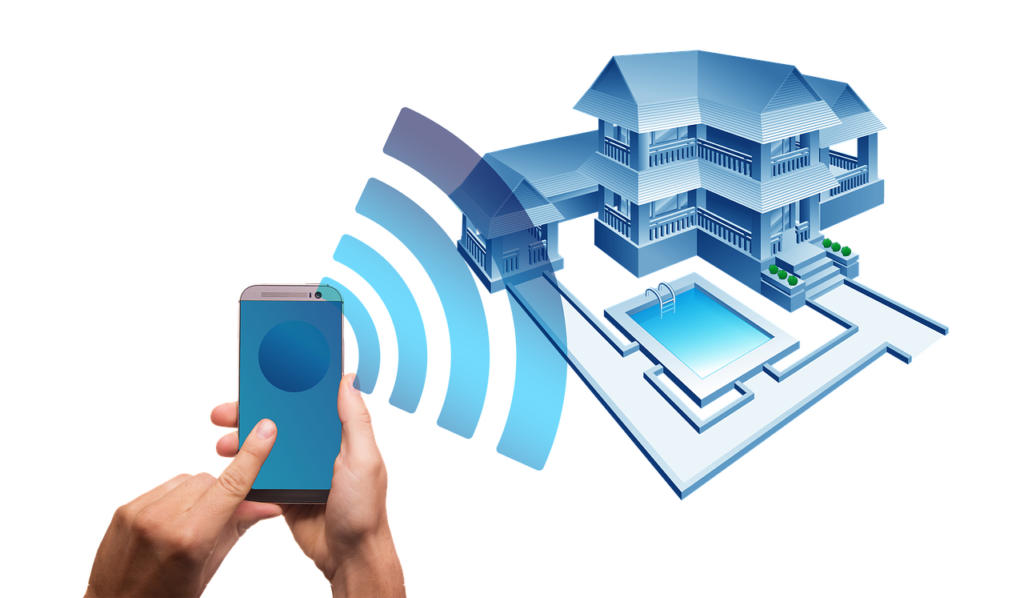
Integration with Smart Home Systems
Creating a connected ecosystem
Smart home appliances can be seamlessly integrated into a larger smart home system, creating a connected ecosystem that enhances your home management. For example, you can connect your smart appliances with a central smart home hub, allowing you to control and monitor them along with other smart devices like lighting, security systems, and thermostats. This connected ecosystem gives you centralized control, allowing you to manage multiple aspects of your home from a single interface. By creating a connected ecosystem, smart home appliances streamline your home management and enhance your overall living experience.
Seamless automation
Integration with smart home systems enables seamless automation of various tasks and routines in your kitchen. For instance, you can set up automation routines that automatically turn on specific appliances when you enter the kitchen or at specific times of the day. You can also create customized routines that adjust lighting, temperature, and music based on your cooking preferences. By automating these tasks, smart home appliances provide convenience and efficiency, allowing you to focus on enjoying your time in the kitchen without getting caught up in mundane tasks.
Smart home management
Smart home appliances also contribute to efficient smart home management through their integration with smart home systems. For example, some smart home systems offer energy monitoring features that provide you with detailed insights into your energy usage. By analyzing this data, you can identify areas where you can further optimize energy consumption and reduce costs. Additionally, smart home management platforms enable remote monitoring and control of your appliances, allowing you to check on the status of your devices and make adjustments even when you’re away from home. This smart home management integration adds convenience and peace of mind to your daily life.
Potential Challenges
Cost of initial investment
One of the main challenges of adopting smart home appliances is their higher initial cost compared to traditional appliances. Smart home appliances often come with advanced features, intelligent algorithms, and connectivity capabilities, which contribute to their higher price tag. However, it’s important to consider the long-term benefits and savings that smart home appliances can bring. While the upfront cost may be higher, the energy efficiency, convenience, and improved safety offered by smart home appliances can outweigh the initial investment in the long run.
Compatibility issues
Another potential challenge with smart home appliances is compatibility with existing devices and smart home systems. As the market for smart home appliances continues to grow, it’s important to ensure that the devices you choose are compatible with your existing setup. Some smart home appliances may require specific platforms or protocols to connect and communicate with other devices in your home. Therefore, it is recommended to research and consider compatibility before purchasing any smart home appliances to ensure a seamless integration and a smooth user experience.
Reliance on internet connectivity
Smart home appliances heavily rely on a stable internet connection to perform their functions effectively. From remote control and monitoring to receiving software updates and accessing online services, most smart home appliances require internet connectivity. While this connectivity offers numerous benefits, it also introduces a potential challenge if the internet connection is unreliable or disrupted. In such cases, the functionality of smart home appliances may be limited or temporarily unavailable. Therefore, it is crucial to have a stable and reliable internet connection to fully utilize the capabilities of smart home appliances.
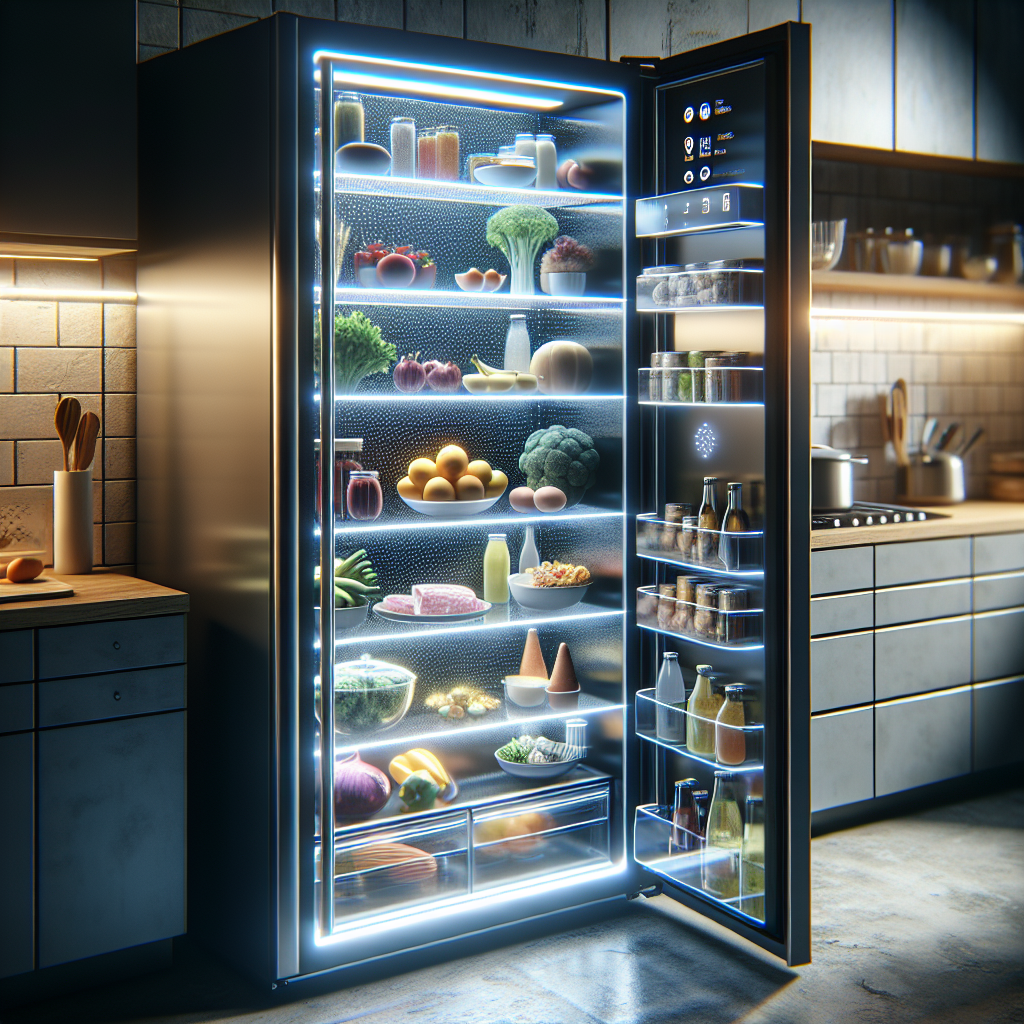
Security and Privacy Concerns
Data collection and sharing
Smart home appliances, like many other connected devices, collect and process data to provide their various functionalities. This data may include information about your usage patterns, preferences, and even personal information. It’s important to consider the data collection practices of smart home appliance manufacturers and ensure that they have robust privacy policies in place. Additionally, understanding how your data may be shared with third parties is crucial in safeguarding your privacy. By being aware of data collection and sharing practices, you can make informed decisions and opt for appliances from trustworthy manufacturers that prioritize data security and privacy.
Privacy risks
With the increasing connectivity of smart home appliances, there is a potential risk of privacy breaches. Hackers or unauthorized individuals may attempt to gain access to your smart home appliances, compromising your privacy and security. To mitigate these risks, it is essential to follow security best practices such as using strong passwords, regularly updating software, and monitoring for any suspicious activities. Additionally, considering appliances from reputable manufacturers that prioritize security and provide regular firmware updates can help protect your privacy and ensure the safety of your smart home.
Cybersecurity vulnerabilities
Smart home appliances, like any other connected device, are susceptible to cybersecurity vulnerabilities. As manufacturers continue to improve security measures, it is important to stay vigilant and proactive in protecting your smart home appliances from potential threats. Regularly updating software and firmware, ensuring secure network configurations, and using advanced authentication methods are some steps you can take to enhance the security of your smart home appliances. By being proactive in addressing cybersecurity vulnerabilities, you can enjoy the benefits of smart home appliances while keeping your kitchen and home secure.
Longevity and Upgradability
Future-proofing your kitchen
With rapid advancements in technology, it is important to consider the longevity and future-proofing of smart home appliances. While current models may offer state-of-the-art features, it is worth considering their compatibility and upgradability with future technologies. Investing in appliances that have a track record of software updates and compatibility with new features can help ensure that your kitchen remains up to date and functional for years to come. Additionally, considering appliances from manufacturers that offer long-term support and regular updates can provide peace of mind and extend the lifespan of your smart home appliances.
Compatibility with future technologies
As technology continues to evolve, new standards and protocols may emerge that could render certain smart home appliances incompatible or obsolete. It is important to consider the compatibility and interoperability of smart home appliances with future technologies when making purchasing decisions. Choosing appliances that adhere to open standards and can work with a wide range of devices and platforms will increase the chances of seamless integration with future technologies. By considering compatibility with future technologies, you can ensure that your kitchen remains adaptable and ready to embrace new advancements.
Availability of updates and support
Regular software updates are essential to ensure the security, performance, and functionality of smart home appliances. When selecting smart home appliances, it is crucial to consider the manufacturer’s reputation for providing updates and ongoing support. Manufacturers that prioritize customer satisfaction and product longevity often release regular updates to address vulnerabilities, add new features, and improve the overall user experience. By choosing appliances from reputable manufacturers that offer reliable updates and ongoing support, you can have confidence in the longevity and performance of your smart home appliances.
In conclusion, the investment in smart home appliances for the kitchen is worth considering due to their numerous advantages. From energy efficiency and convenience to time-saving features and improved safety, smart home appliances enhance your cooking experience and contribute to a more connected and efficient home. Although there may be potential challenges such as the initial cost and compatibility issues, the long-term savings, increased functionality, and integration with smart home systems make smart home appliances a valuable addition to your kitchen. However, it is important to be aware of security and privacy concerns and take necessary precautions to protect your data and privacy. By carefully selecting smart home appliances from reputable manufacturers and considering their future-proofing and upgradability, you can ensure that your kitchen remains at the forefront of technology and enjoy the benefits of a smart and connected kitchen for years to come.
